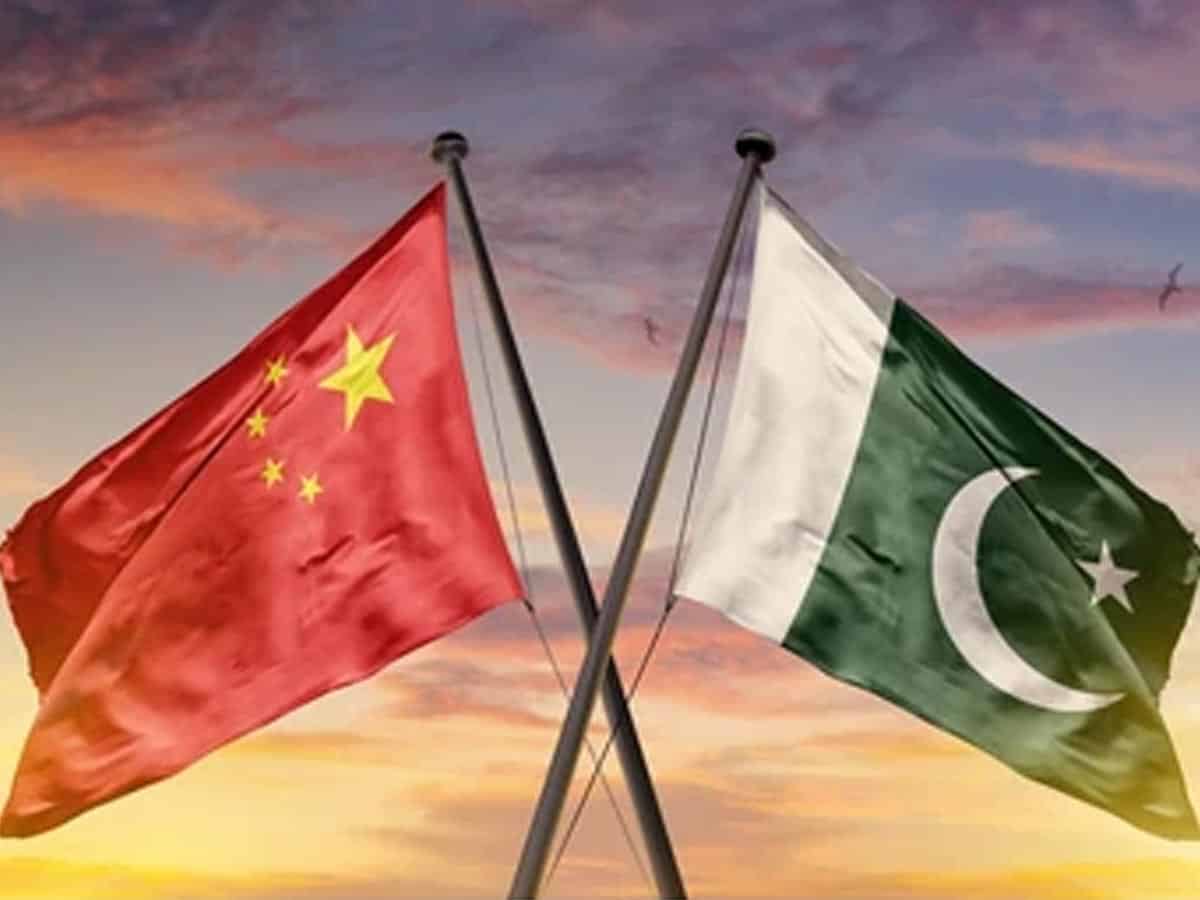
Islamabad: Pakistan and China on Monday signed six important documents to expand and expedite cooperation under the ambitious multi-billion dollar China-Pakistan Economic Corridor (CPEC) project, further cementing the all-weather strategic relations between the countries.
Prime Minister Shehbaz Sharif and Chinese Vice Premier He Lifeng witnessed the signing ceremony held to mark 10 years of the CPEC, a collection of infrastructure and other projects under construction throughout Pakistan since 2013.
The CPEC, which connects Gwadar Port in Pakistan’s Balochistan with China’s Xinjiang province, is opposed by India as it is being laid through Pakistan-occupied Kashmir.
Minister for Planning and Development Ahsan Iqbal and Vice Chairman of China’s National Development and Reforms Commission Zhao Chenxin signed the document on the joint cooperation committee of CPEC as well as another agreement on the establishment of an expert exchange mechanism within the framework of the CPEC.
The third document was signed by the Secretary Ministry of National Food Security Zafar Hassan and the Chinese Charge D’Affaires Pang Chunxue to export dried chillies from Pakistan to China.
Member Planning of National Highway Authority Asim Amin and Pang signed the fourth document on the realignment of the Karakoram Highway Phase II project feasibility study.
The two sides also signed the MOU on the Industrial Workers’ Exchange Programme through diplomatic channels and agreed to promote the strategic ML-1 rail upgradation project.
Prime Minister Sharif in his comments on the occasion said the documents signed aimed at further enhancing economic relations between Pakistan and China, adding that so far over USD 25 billion worth of investment has taken place under the CPEC in Pakistan’s power and hydel sector, road infrastructure, and public transport.
“We are now entering the second phase of the CPEC which will envisage investments in sectors such as agriculture and information technology,” he said.
He assured that Pakistan was ready to contribute towards Chinese President Xi Jinping’s vision of the shared destiny of progress and prosperity as he showed confidence that Pakistan would stand on its own feet.
“We will emulate the Chinese model of development to achieve peace and prosperity in the country,” he said, adding that Pakistan and China enjoy a unique relationship.
“We are all-weather friends, iron brothers and this friendship will continue and will not tolerate any obstacles in its way,” he said.
Earlier, the Chinese vice premier, who is a member of the Politburo of the Central Committee of the ruling Communist Party, arrived in Pakistan on Sunday on a three-day trip to attend the celebration held at the completion of a decade of the CPEC.
“Vice Premier He will attend the 10th-anniversary celebrations of CPEC and call on the President and the Prime Minister,” the Foreign Office earlier said.
The visit by the vice premier comes as Pakistan narrowly escaped defaulting on foreign obligations.
China played a significant role in helping the country by rolling over more than USD 5 billion in loans.
CPEC, which was initially a USD 46 billion project, later on, expanded to USD 62 billion.
The key agreement for the CPEC projects was agreed in 2013 but it was formally launched when President Xi Jinping visited Pakistan in 2015.
The BRI was launched by Chinese President Xi in 2013. It aims to link Southeast Asia, Central Asia, the Gulf region, Africa and Europe with a network of land and sea routes.
The BRI is seen as an attempt by China to further its influence abroad with infrastructure projects funded by Chinese investments all over the world.
The initiative also led to allegations of smaller countries reeling under mounting Chinese debt after Sri Lanka gave its Hambantota port in a debt swap to China in 2017 on a 99-year lease.



